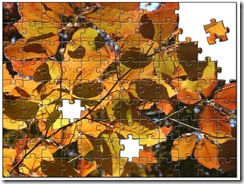We are already beginning to get involved in our second Unit of Inquiry which began during this last week. Of course work will continue throughout the school year on our first, as we come to understand more fully about the Profile of the Learner; indeed as we continue to display these qualities in our everyday (school) lives.
However, time now to tell you about what we will be up to during the course of the next few weeks. The new unit is entitled Our World of Plants. The Central Idea is that 'Plants are vital for life on Earth' and in order to further our understanding, we will be following three main lines of inquiry:
- Plants have similarities and differences
- People depend on plants for many purposes
- Our responsibility to look after plant life
These inquiries will be supported through activities such as hands-on observations of a range of different plants, scientific investigations to discover how plants grow and what they need in order to thrive, visits to nearby places to find out how different plants are cared for and research into what plants are used for.
During the unit a range of skills will be developed; from research skills, where children will observe carefully using different senses as they become aware of details, to thinking skills where they will acquire knowledge, use new vocabulary and remember what has been learnt. They will hone their social skills as they co-operate in a group or with a partner and learn to share and take turns and their communication skills as they listen to directions and instructions and share ideas. As we venture out of the school grounds, so self-management skills will lead to children becoming aware of safety and avoiding putting themselves or others in danger.
Although the focus of the unit is science, work right across the curriculum is of course possible. Children have already surveyed their peers to find how many people like and do not like certain fruits and vegetables and recorded the results in a table.
Why not watch this space for more examples of cross-curricular links as we piece together Our World of Plants?





No comments:
Post a Comment